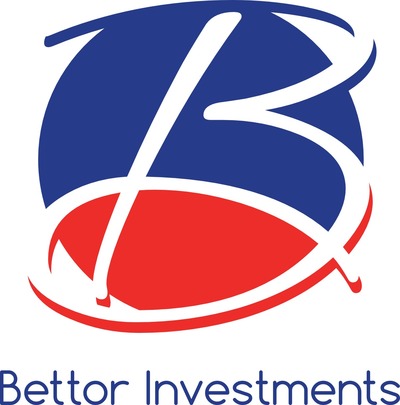Predicting the end of this Nevada legislation was the year's Best Bet
Only a year ago I wrote a two-part report on why I confidently knew the colossally misguided idea of "entity wagering" was doomed to fail. The past week's headlines have helped confirm my easy suspicions of this plan when one of the more known company's attempting this venture closed their books. Sadly, they took some delusional people and their money with them for the ride.
To refresh our memory, here are the basics that were laid out to attract "investors" in this get-rich slow scheme, headquartered and only taking place in Nevada:
Entity Wagering 101 Update
Entity wagering can most simply be described as a sports betting mutual fund. Investors (bettors) bought into the fund with the entity manager subsequently investing money in preferred sports bets instead of traditional businesses or companies as in a mutual fund.
 To legalize this, the Nevada state legislature in June 2015 passed Senate Bill 443 permitting entity wagering. The bill allowed Nevada sportsbooks to accept wagers from a large pool of investors called "entities". The pools were open to US residents, regardless of where they live, but the entity itself had to be operated by someone located in the state of Nevada.
To legalize this, the Nevada state legislature in June 2015 passed Senate Bill 443 permitting entity wagering. The bill allowed Nevada sportsbooks to accept wagers from a large pool of investors called "entities". The pools were open to US residents, regardless of where they live, but the entity itself had to be operated by someone located in the state of Nevada.
Similar to a mutual fund, the sellers were retaining "experts" in handicapping and analyzing different sports. An MBA (if you will) in college basketball, NFL, baseball, etc. could start a fund that focuses on their special area of handicapping wisdom. All wagers that were available to the public by the sportsbook operator were wagered on by the entity. As an example, an entity focused on the NFL could take a position on futures, wager on sides, totals or props for games each week and wager during the game with in-play wagering.
The plan was for entities to work like any other legal Nevada business undergoing a comprehensive background check. The entity was to keep original copies of records of the wagers and any records that are required by Nevada's general business laws. All profits and losses would be done electronically by the entity and the sportsbook operator. In keeping with Nevada gaming laws, you would have to prove you're 21 to take part in the fund. In all, very corporate.
Even though each entity is operated as a business, investors still had to do their own research on the entity/fund to see if it's a fit, like a traditional mutual fund. Part of the premise was participants might be cynically worried as trusting a new handicapper or group of handicappers joined together on an 800-telephone line.
Bettor Investments / Worse Investments
Flash forward to this week and no surprise whatsoever of the first major casualty resulting from this bizarre business plan, incredibly backed by the Nevada legislature.
Former clients of Bettor Investments, one of the first sports betting mutual funds in Nevada, are accusing its founder of going "radio silent" and not responding to requests to return their money. Nine clients said Reno-based Matt Stuart has not responded to several emails and calls to pay back promissory notes, according to a January email chain the investors shared with the Las Vegas Review-Journal.
 The Bettor Investments website has been removed and visitors are currently redirected to Stuart's new website, Nofreepicks, which offers a subscription service to his daily sports bets. Stuart is charging $30 for a 30-day subscription and $150 for a one-year subscription on the new site, which was created in November. He has put his Bettor Investments domain on sale on GoDaddy for $1,163.
The Bettor Investments website has been removed and visitors are currently redirected to Stuart's new website, Nofreepicks, which offers a subscription service to his daily sports bets. Stuart is charging $30 for a 30-day subscription and $150 for a one-year subscription on the new site, which was created in November. He has put his Bettor Investments domain on sale on GoDaddy for $1,163.
Nevada court records show Stuart filed for Chapter 7 bankruptcy in Nevada in 2007. At the time, he had $66,600 in liabilities, mainly credit card debt, and just $13,470 in assets, including a 2006 Toyota Corolla valued at $11,285, a handgun worth $400 and a Wells Fargo checking account with $185.
Overall, it is difficult how to best interpret this. If you were an investor, it is often embarrassing putting in a claim to get your money back, which is likely a futile effort anyway. Then again, it could be inspiring to keep watch for upcoming Nevada legislation. If they're willing to sponsor such nonsense, why not take advantage and sell it to others if they're willing to deposit their cash? In other words, Stuart and others attempting entity wagering did nothing illegal except within the language of those promissory notes.
Bettor Investments was perhaps guiltier of highly unethical behavior by trying to mystify people with financial jargon instead of the traditional handicapper hype. In a screen shot of their website before it was deleted, the fund said it would generate "conservative growth, profit and stability for our investors" by using "mathematical probability calculations and statistical analysis to determine daily which bets are profitable." I suppose that's sounds more impressive than "the Chargers +3 off a home loss is a guaranteed 50,000-star play on Monday Night".
Questions Never Asked
In the earlier two-part article, I also reviewed a few logical questions, "investors" might want to take into consideration before putting faith in this concept. They included:
The vigorish, vig or "juice" on a sample bet is 10%. Many of these small start-up entities wagering companies already received their license in Nevada to also include proposition and various in-game wagers into the mix, which often have vig over 10%. Doesn't this affect "fund" performance and overall a high cost within an investment?
All experienced bettors know that to achieve a threshold of profit they need to attain at least a 56% straight-up win percentage to break even. Getting into the 60%+ range is very healthy and a premium goal. Supposedly, experts at each fund knew which specific bets to maximize performance levels and bettors would be comfortable how money (wagers) would be distributed? A lot of faith here.
As written in Nevada State Senate Bill 443, the entity must disclose each bet to its investors. BUT, only after each wager was made and the event began. In other words, bettors WILL NOT be getting a text or email two hours before each game or even two minutes prior alerting them. Therefore, if the bettor wanted to "back up" the entity's suggested bets with a preferred sportsbook online, they would not have the opportunity. Or for that matter, play directly at a legal Nevada sports book.
There were some "modest fees" incurred to run the entity, but I believe they were never disclosed? Were bettors/investors acceptable with that? No one was ever charged money to place a bet. Only the cost of potentially losing it (10%+).
The new entity wagering companies or funds bragged of investors being paid quarterly. Quite suspicious, as not one bet had not been placed. Forecasting the brightest results, were bettors (investors) who are used to behavior being paid daily or weekly, willing to wait three months to be rewarded?
It looks like many of these questions and many others are beginning to be answered this week starting with Bettor Investments.
Blaming CG Technology
The Nevada law opened the door to legal sports betting for people living in states where placing wagers on games is still illegal. However, the hype around the launch of sports betting mutual funds never translated into large-scale flows because of regulation, said Dennis Gutwald, a gaming attorney at McDonald Carano in Las Vegas.
The legislation "put so much of an emphasis on sports books to make sure that everything was OK with the funds that very few had any appetite" to accept wagers from them, said Gutwald.
As a typical mutual fund, sports bettors needed to wager with various books to get the best odds, but only CG Technology was willing to accept bets from sports mutual funds, he said.
Stuart said he shut his fund down in late 2016 because of the burdensome regulation and concerns over the financial health of CG Technology, which was slapped with a steep fine for an illegal gambling and money laundering scheme. He said "I am a one-man shop, so it made no sense for me to continue. I could not honestly ask potential investors to trust (let alone) expose their own private financial information with a CG after the turmoil they have had."
CG Technology is one of the largest U.S. race and sports book operators with eight Nevada locations, including Palms, The Cosmopolitan of Las Vegas, Hard Rock Hotel and Casinos, The M Resort and Tropicana Las Vegas. They agreed in October 2016 to pay a $22.5 million fine after being charged with participating in an illegal gambling and money laundering operation.
Prosecutors said CG Technology, at the time known as Cantor Gaming, aided and abetted the operation of an illegal gambling business and money laundering from 2009 to 2013. In July 2016 the company was fined $1.5 million by Nevada gaming regulators for inaccurate payouts to bettors.
Blame who you like here but we might be asking one more final question overall.
If we only had ONE location accepting wagering to depend on within a "sports mutual fund" does that make any sense despite their bad reputation? The fact that this location has a defined legal past makes it more illogical. But remember, people weren't gambling here, they were "investing".
Add this one to the "what only happens in Vegas" pile.
Glenn Greene covers the games from a betting angle every week exclusively at OSGA.com. For weekly betting insights, inlcuding previews and picks from Glenn, click here.







































